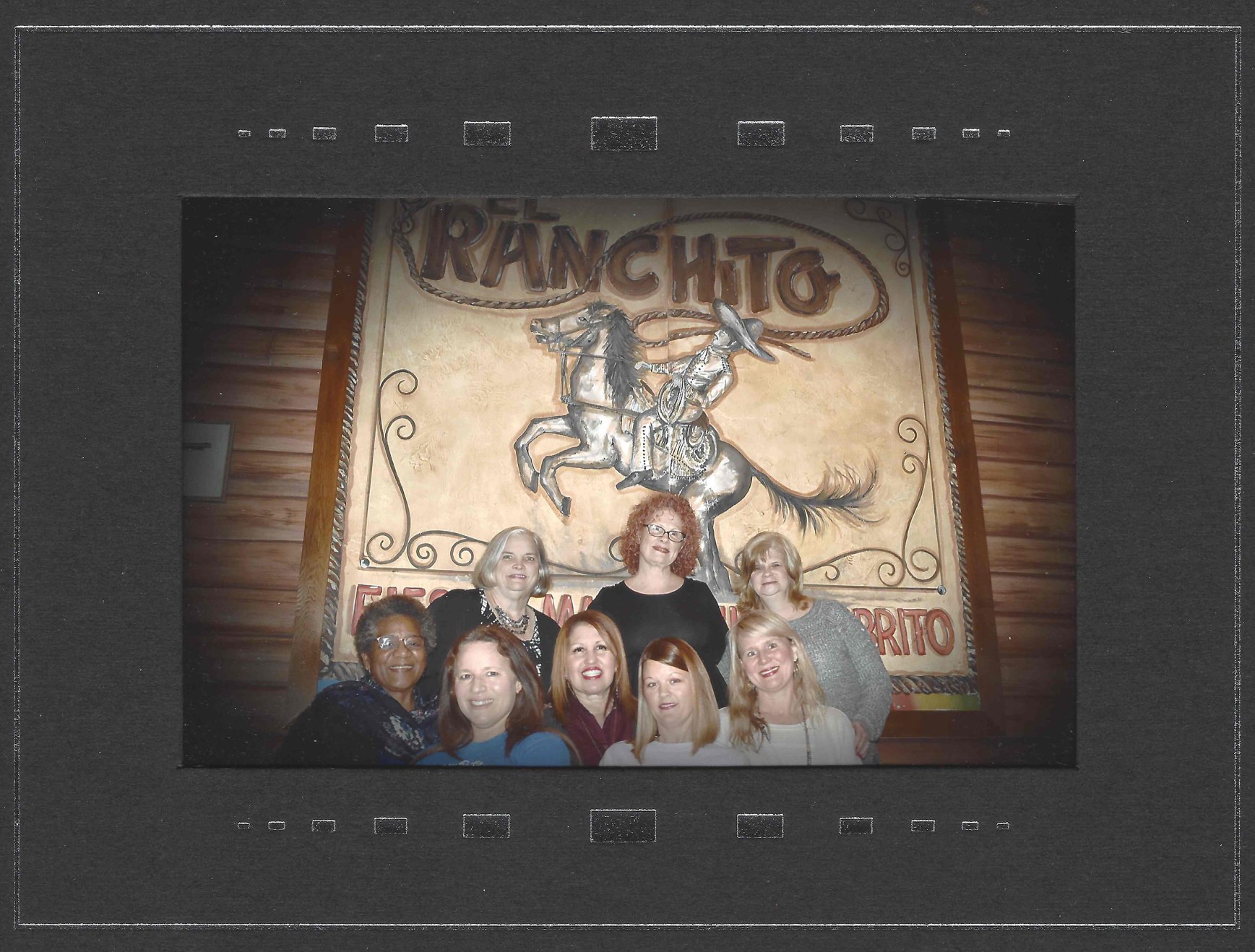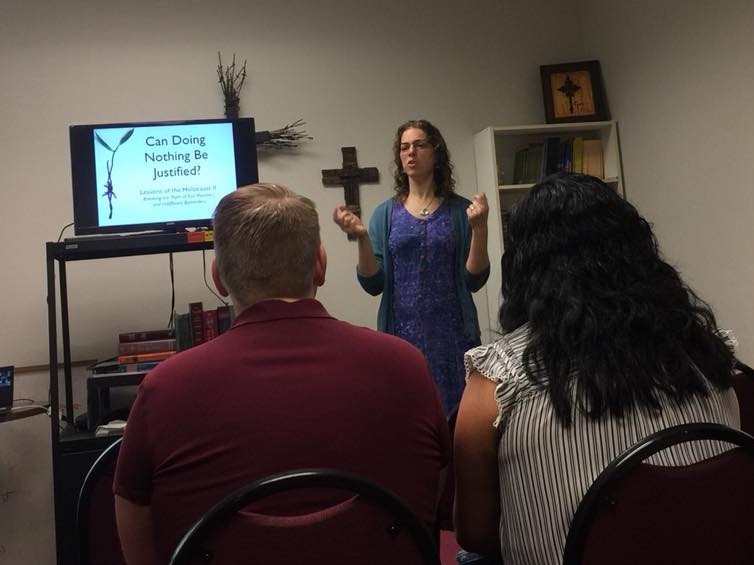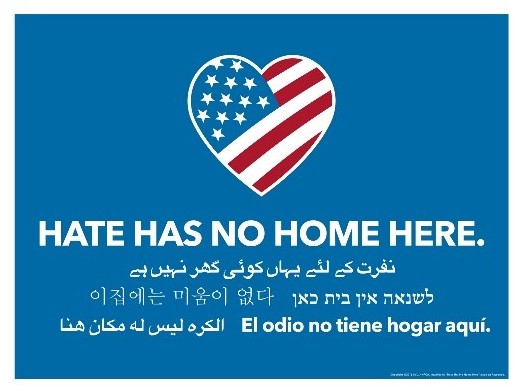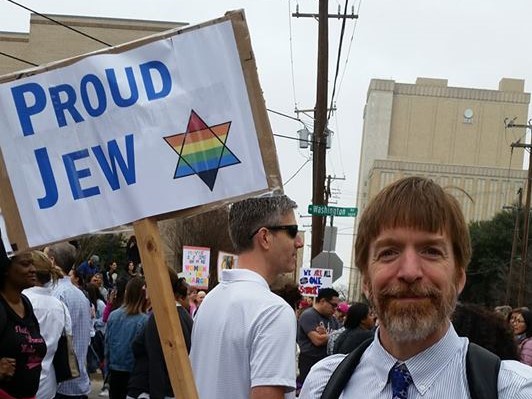Adult Education
for Interfaith Communities
The Holocaust is a human story with which we must all grapple. A deeper understanding of the Holocaust helps us to work for peace and justice in our modern world. We will struggle with the difficult issues of the Holocaust together.
Jump To
Blogs of Interest
Interfaith Blogs
Click here to view blogs related to interfaith relations and how we can work together.
The Holocaust should be relevant to every person in every society.
Single Talks
An Overview
Are you interested in what you can learn from the Holocaust? Perhaps you know something about it but have never really understood why it is important. Perhaps you would like to know more about this difficult subject. We offer talks to help you understand the issues raised by the Holocaust and why it is so important to understand.
Because they were Jews
What we can learn from a victim-centered narrative of the Holocaust? This talk is an overview of the story of the Holocaust though the eyes of the Jews, recognizing them not just as victims but as people with stories to tell.
This talk presents the Holocaust primarily from a historical perspective, putting the events of the Holocaust in context of what occurred both before and after the war. The story is presented from a Jewish perspective, looking at how Jews responded, both during and after the war. As with all our talks, we end with a discussion of what lessons we should learn.
Lessons of the Holocaust
This talk is an exploration of what we can learn from the decisions – good and bad – of the “bystanders” (people who were neither in power nor the targets of oppression) in the Holocaust.
What is the bystander’s obligation? Can doing nothing be justified? When does a bystander become a perpetrator? Can a bystander make a difference? What can and should we do?
Custom talks or discussions
If you do not see exactly for what you are looking on our list, we can develop something new for you. Get in touch with us and let us know for what you are looking.
Multi-Day Classes
A Deep Dive
Are you looking for an in-depth exploration of the Holocaust from a new perspective? We offer classes that explore the big issues raised by the Holocaust in multi-day classes. These can be done over several days or once a week over several weeks.
What we can learn from a victim-centered narrative of the Holocaust
A 6-class look at the story of the Holocaust though the eyes of the Jews, recognizing them not just as victims but as people with stories to tell.
Class 1: Historical Overview. An overview of the events of the Holocaust in context (1920 to 1945)
Class 2: The Jewish Response. What did they do when their government and their neighbors turned against them? How did the Jews respond to chaos, terror, and the attempt to destroy them from the inside out?
Class 3: The Bystanders’ Response. How did the people who were not targeted respond? When does a bystander become a perpetrator? Can doing nothing be justified? Was there anything they could do to help?
Class 4: Return to Life. “It’s over. You’re free. Go home.” What happens after it’s over? How did the Jews respond to their freedom? What did they find when they went home? Where could they go now? (1945-1956)
Class 5: Lessons for Us. Why do we need to learn this? A discussion of what we want you to learn from this very difficult story.
Class 6: Asking the Big Questions. The Holocaust makes us question everything about ourselves and our world. The final class is a chance to discuss these difficult questions.
Breaking the myth of evil monsters and indifferent bystanders
A 4-class exploration of what we can learn from the decisions – good and bad – of the “bystanders” (people who were neither in power nor the targets of oppression) in the Holocaust.
Class 1: Can doing nothing be justified? What is the bystander’s obligation? Are you required to risk your life, or the lives of your family, to save another’s?
Class 2: When does a bystander become a perpetrator? Nazis were not “evil monsters.” They were ordinary people who made very bad decisions.
Class 3: Making a difference. Helpers were not “unusually righteous.” They were ordinary people who made courageous decisions.
Class 4: What can we do? What does it mean to be an upstander?
Did the Holocaust change anything?
A 3-class exploration of the Holocaust from a Jewish perspective, an American perspective, and a global perspective, considering what we can and should be learning from these varied viewpoints.
Class 1: The Jewish Experience of the Holocaust. How was this different/similar to previous Jewish experiences? How was Jewish life impacted during the Holocaust (how did they manage to hold on)? How has Jewish life been impacted since (what do we do with it/what have we learned)?
Class 2: The American Experience of the Holocaust. What did we know and when? Did people object or protest? Did it make a difference? Why did it take so long to get involved? What can we learn from all of that?
Class 3: The World Since the Holocaust. Other genocides (and how they compare). Actions that mattered – e.g. Kosovo, Apartheid. Israel (why it exists, is it a result of the Holocaust, is it an apartheid state, etc.). What have we learned?
Custom classes
If you do not see exactly for what you are looking on our list, we can develop something new for you. Get in touch with us and let us know for what you are looking.
Other Programs
Other types of programs
In addition to the classes specifically designed for interfaith adult education, we offer a variety of programs designed for adults of all types. Most notably, we offer programs designed for teachers and programs to teach adults to tell the stories of those who experienced the Holocaust. Many of these programs are online and some can be accessed on your YouTube channel.
Teacher training
We offer a variety of teacher training workshops including teaching the Holocaust through story and how to teach the Holocaust without traumatizing your students. Find out more about our teacher-oriented offerings here.
Storytelling
We also teach people to be storytellers, tellers of the stories of those who experienced the Holocaust, both those who survived and those who did not. This is crucial because when the survivors are no longer physically with us, it will be up to us to keep the memories alive. Find out more about storytelling workshops here.
Follow Us on Facebook & YouTube
© 2020 All rights reserved




